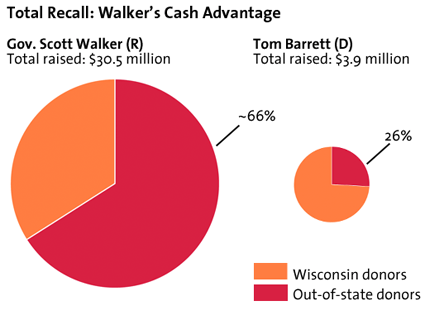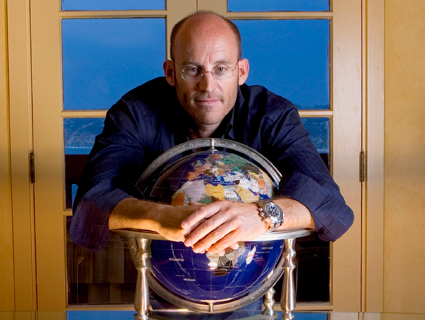
An actual flood of donations.<a href="http://flickr.com/link-to-source-image">fortuna777 </a>/Shutterstock
The big news from Tuesday, rightly, is that Wisconsin Gov. Scott Walker cruised to victory in his recall election with help from a handful of out-of-state billionaires. Walker raised $30 million; his challenger, Democrat Tom Barrett, raised $3.9 million. Money doesn’t buy elections, but it definitely makes them a lot easier to win—otherwise there’d be no point in giving.
But the recall wasn’t the only election on Tuesday and it wasn’t the only race in which a massive spending gap tipped the scales. As MoJo alum Mike Beckel noted at iWatch News, Democrats spent big bucks to take down an independent candidate in a California primary. In the 26th district, Democrat Julie Brownley squeaked past independent Linda Parks for the second spot on the ballot in November:
Records show four outside groups, including two super PACs, have collectively spent more than $1 million on independent expenditures to help Brownley.
The two pro-Brownley super PACs in the race are the “House Majority PAC,” whose primary purpose is to “win back the House majority for Democrats,” and “Women Vote,” a project of EMILY’s List, which works to elect Democratic women supportive of abortion rights.
By contrast, the only outside group supporting Parks, centrist super-PAC icPurple, spent just $52,000—a roughly 20 to 1 gap. For Democratic donors, it was money well spent. The 26th is a blue district they’ll need to win in November to have any chance of taking back the House.
Elsewhere in California, Democrats failed to put a candidate on the November ballot in the Democratic-leaning 31st district despite picking up nearly half the vote. That’s because they never settled on a candidate, splitting their portion of the vote four ways. (In California’s new “jungle primary” system, the top two vote-getters in the primary, regardless of party, appear on the ballot in November.) Birther dentist Orly Taitz, meanwhile, received 113,000 votes in the US Senate primary, but did not qualify for the November ballot. Maybe next time.













